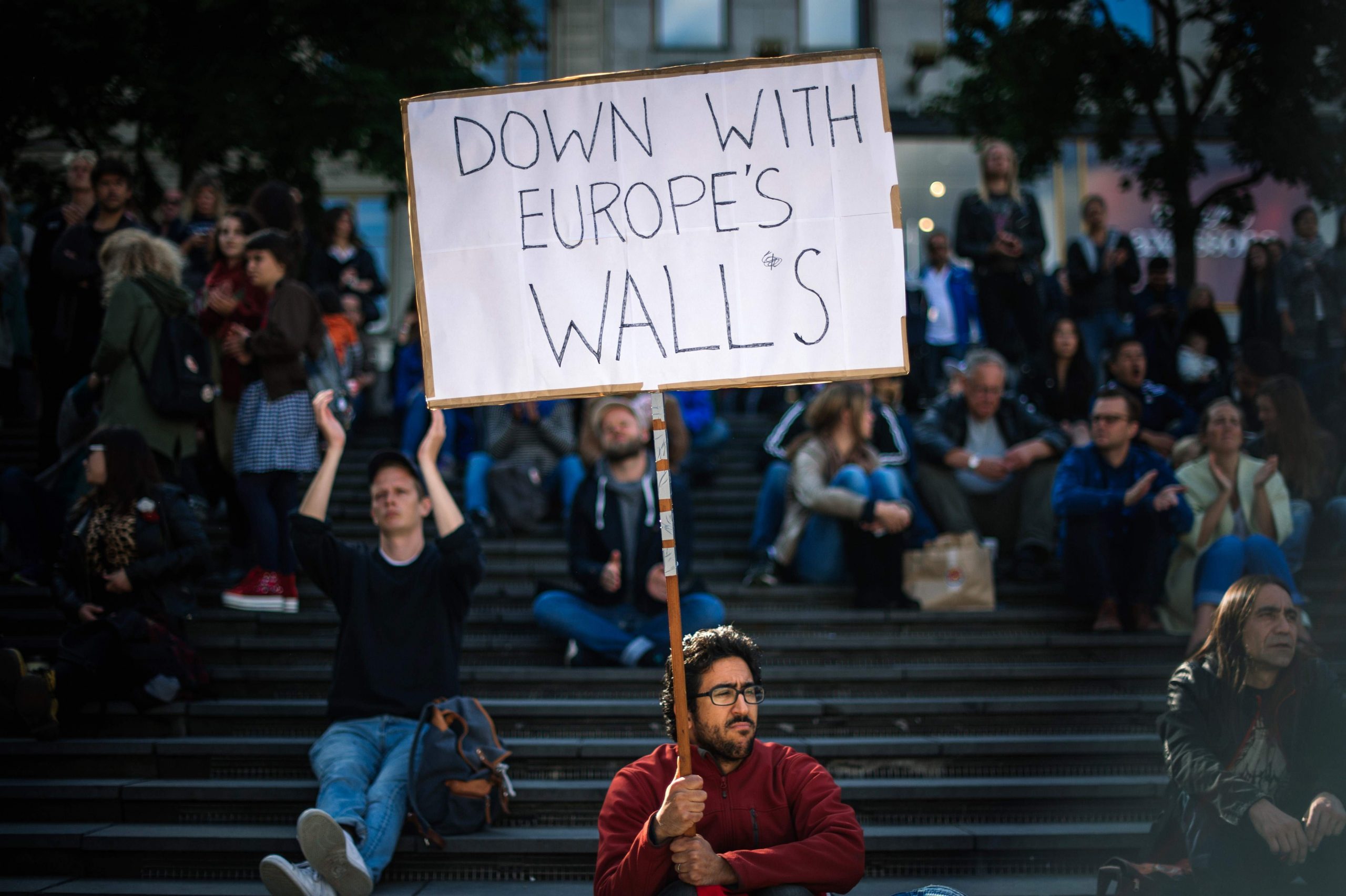
In the summer of 1999 I was commissioned by a Scandinavian magazine to write about the completion of the longest road-and-rail link in Europe, connecting Denmark and Sweden across the Øresund strait at the gateway to the Baltic Sea. I was a guest at the ceremony, along with assorted Swedish and Danish royalty, at which the final girder of the concrete and steel-cable-stayed bridge was fitted into place.
It was a cold day but the mood was joyful. The Øresund Fixed Link symbolised the new Europe of open borders and free movement of people. There was much excitement about the creation of an economic zone centred on Copenhagen but incorporating Malmö and the university town of Lund in Sweden. The Øresund Bridge has since become an icon of Scandinavian culture, in part because of the success of the noirish television crime series The Bridge, starring the blank-eyed Sofia Helin as the Swedish police detective Saga Norén, which fetishises the structure in its brilliantly stylised opening credits.
Emergency measures
Last autumn, after Angela Merkel declared that Germany’s borders were open to Syrian refugees, it was across the Øresund that tens of thousands of desperate people began arriving in Sweden, straining the country’s habitual openness to incomers. They were arriving not just from Syria but from Afghanistan, Iraq, Pakistan, Eritrea and elsewhere in Africa – sometimes as many as 10,000 a week. In 2015, 163,000 people registered for asylum in Sweden, including 36,000 unaccompanied children. Many others are presumed to have entered the country illegally. (The comparative figure registering for asylum in Germany was 1.2 million and in Denmark 25,000. David Cameron has pledged to resettle 20,000 Syrian refugees in Britain by 2020.)
There was a sense last November that Stefan Löfven’s minority Social Democratic government was losing control of the situation. As a result, Sweden was forced to introduce emergency border controls, as well as security checks for those arriving across the bridge from Denmark. The rules of the Schengen passport-free area allow for such measures to be enacted in a crisis. Denmark responded by tightening border controls with Germany as fences and barriers were erected across Europe in an attempt to stem the flow of refugees heading north along the so-called western Balkan route.
Sweden’s Blair
To the outsider, Sweden no longer seems to be a country at ease with itself. Mass immigration has tested the old Scandinavian model of welfare capitalism to near breaking point and resentment is festering. “Immigration is now the number one issue facing our country,” Johan Forssell told me when we met at the Riksdag in Stockholm. He is a former chief of staff for Fredrik Reinfeldt, prime minister from 2006-14. As a former leader of the Moderate Party, Reinfeldt is a conservative, but, in his commitment to free markets and open borders, the politician he most resembles is Tony Blair. I was a guest at a lunch for Reinfeldt in London last autumn, and, as he defended his immigration policies, I was struck above all by his liberalism.
In August 2014, in a celebrated speech, he called on his fellow Swedes to “open their hearts” and “show tolerance” to immigrants and asylum-seekers. The speech was received with derision. It surely contributed to the defeat of the Moderate-led centre-right coalition in the general election in which the far-right Sweden Democrats, led by Jimmie Åkesson, recorded their best ever performance, winning 49 out of 349 parliamentary seats. “It was a brave speech, but Freddie didn’t prepare the people for it,” one senior Swedish politician said to me.
Editorial positions
One afternoon I visited Peter Wolodarski, the 38-year-old editor-in-chief of Sweden’s leading quality daily newspaper, Dagens Nyheter (“Today’s News”), at his office in Stockholm. The son of a Polish-Jewish architect who came to Sweden in the 1960s, Wolodarski is highly influential: editor, columnist and television commentator, and an unapologetic liberal internationalist. He likened his politics to David Miliband’s. In the past, Dagens Nyheter, which is privately owned by the Bonnier family, supported the then-hegemonic Social Democrats but, reflecting the fluidity and shifting alliances of Swedish politics, it now pursues what it describes as an “independently liberal” editorial position.
Wolodarski, who used to edit the comment pages, is slim and energetic and speaks perfect English. We discussed the EU referendum in Britain, which alarmed and mystified him, and Islamist terror as well as the rise of the anti-immigrant Sweden Democrats. Security at the Dagens Nyheter offices has been tightened considerably since the Charlie Hebdo massacre – Wolodarski’s paper as well as others in the group republished Charlie cartoons – and it has been reported that as many as 300 Swedish nationals are fighting for Isis in Syria. One Swede, Osama Krayem, is suspected of being part of the group that carried out the Brussels attacks in March. The Sweden Democrats have seized on this as further evidence of the failures of Nordic multiculturalism.
A refugee’s story
One morning I visited a refugee registration centre in Märsta in the northern suburbs. The people there were fleeing war or persecution. Each was waiting to discover where next they would be moved while their asylum application was processed.
One young, secular Muslim woman from Gambia told me she was escaping an arranged marriage (to her mother’s polygamous brother, who was in his sixties) and the horror of female genital mutilation. Articulate and frustrated, she wept as we talked. The next day, I received an email from her. She was now in a small town in the far north. “It is remote here and cold,” she wrote. And then she wished me a “safe return journey” to London.
This article appears in the 04 May 2016 issue of the New Statesman, The longest hatred






